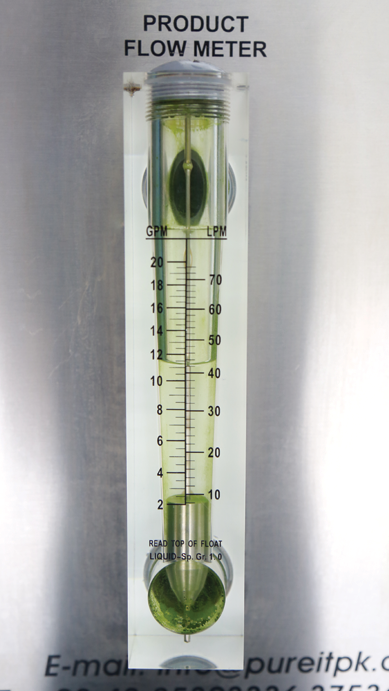
.
Each year, nearly 41,000 children in Pakistan die from diarrhea caused by contaminated water supplies. Mustafa Naseem, who grew up drinking from those same water supplies, wants to change that.
Naseem is an expert-in-residence for the Information and Communication Technology for Development program at the ATLAS Institute. In September, he and a team from the Information Technology University (ITU) in Lahore, Pakistan, were awarded $374,000 from the U.S. Agency for International Development and Pakistan’s Higher Education Commission to design a water quality testing and metering system to be installed and tested at 20 Punjab filtration plants over three years.
Success depends on designing a system that communities will embrace and that’s reliable and easy to use.
“I’m really excited to have the opportunity to contribute to a water-related issue in Pakistan,” Naseem said. “Many people there have limited access to clean drinking water. It’s an issue close to my heart.”
To improve water quality monitoring, Naseem’s team will design a low-cost, automated, modular water testing unit. The system will upload results regularly via cellular data networks to the municipal water authority’s servers, where automated alerts can warn technicians when levels exceed parameters.
In addition to tackling water safety, their project aims to distribute water more equitably. Naseem explained that water dispensing stations have limited supplies, but no limits are placed on how much a family can take. Wealthier households that fetch water by truck place a greater burden on the system than poorer households that collect water by hand.
The team at ITU will focus on this problem by continuing work on an automated dispensing unit originally developed by students that Naseem mentored. Their Water ATM system would use government-issued RFID cards to identify users and limit how much water is dispensed based on household size.
During the third year, the team will look toward commercialization so a local industry partner can scale up the technology they’ve developed.
Creating remote water sensing units is complex, but it’s not their biggest challenge. Success depends on designing a system that communities will embrace and that’s reliable and easy to use. Dealing with unsafe water supplies also isn’t a straightforward matter, Naseem explained. While the water company could shut down plants from afar, that would create another set of problems.
“Even if the water is not at the required safety levels, it may be the only source of drinking water for a community,” Naseem said. “It’s a community-run filtration plant, and the residents need to have some amount of say as to what happens.”
One option is to install digital signs that would warn users that they need to boil or further treat water before drinking.
“Information and Communication Technology for Development is not just about technology; it’s about these ethical considerations,” Naseem said. “We are sending students to vulnerable places, and there is a danger of them having a savior complex. I want to make sure students realize that there is beauty and knowledge we can rely on in these communities.”






